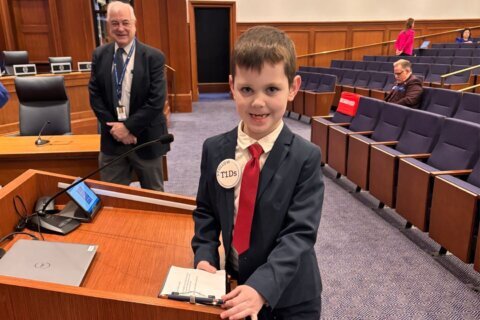With soaring demand for mental health care on college and university campuses, and nationwide, a Virginia pilot program is providing help now, and helping to ensure there are enough professionals to meet that growing need.
“Every year, we see a rise in demand for mental health services,” said psychologist Rachel Wernicke, associate dean and chief mental health officer at George Mason University in Fairfax, Virginia. “The top concerns for students who present to our counseling center have been stress, depression, and anxiety.”
The need for effective mental health care continues to increase.
“In the last 10 years, we’ve started to see worsening severity of mental illness and more students coming in with a history of self-harm or a history of suicidal ideation or attempts,” Wernicke said.
To deal with the current need, and in attempt to plan for the future, Mason is one of six Virginia colleges receiving a two-year grant for a pilot program to pay salaries of counseling and social work graduates, who are still working to get their professional licenses.
“They have their degree, and then this experience helps them accrue the supervised hours they need for their licensure,” Wernicke said.
A May 30 report from the State Council of Higher Education for Virginia said five months after awarding Higher Education Mental Health Workforce Pilot grants to George Mason, James Madison, Christopher Newport, Longwood, Radford and Virginia Tech, “participating institutions are already seeing tangible impacts.”
According to the state council’s report, five Licensed Clinical Social Work and Licensed Professional Counselor candidates “have collectively served 220 individual student-patients and completed more than 740 clinical hours.”
Wernicke said there’s an ever-growing need to enable young students in Virginia, who are interested in mental health careers to enter the workforce.
“We have an aging workforce in mental health, and we need to replenish our workforce, but it’s not an easy process to enter the workforce,” Wernicke said.
In order to get their licenses, social work and counseling graduates are required to undergo thousands of hours of clinical work experience, and hundreds of hours being supervised by licensed professionals.
“If it’s not included in a job, they have to pay for that privately,” Wernicke said. “That’s an expense — a significant expense — that’s a barrier for a number of people.”
Salaries are typically low for pre-licensed social work and counseling candidates, said Wernicke.
Having to personally pay to be supervised results in “limiting our pool of potential health professionals to people who have the financial privilege to be able to afford that, which means we’re not really diversifying our workforce in the way that we need to.”
The pilot program is apparently helping to reduce burnout for current mental health employees: “The pre-licensee position has been beneficial in alleviating the caseloads of the other clinicians by distributing clinical caseloads thus easing overall work burden,” according to an unidentified participant cited in the state council’s May report.
In addition, the program has piqued candidate interest in working in college mental health facilities after licensure, according to the report.
“Once they have their hours for licensure, probably we’d be hoping to hire them on to work at Mason, but they could go anywhere,” Wernicke said.








